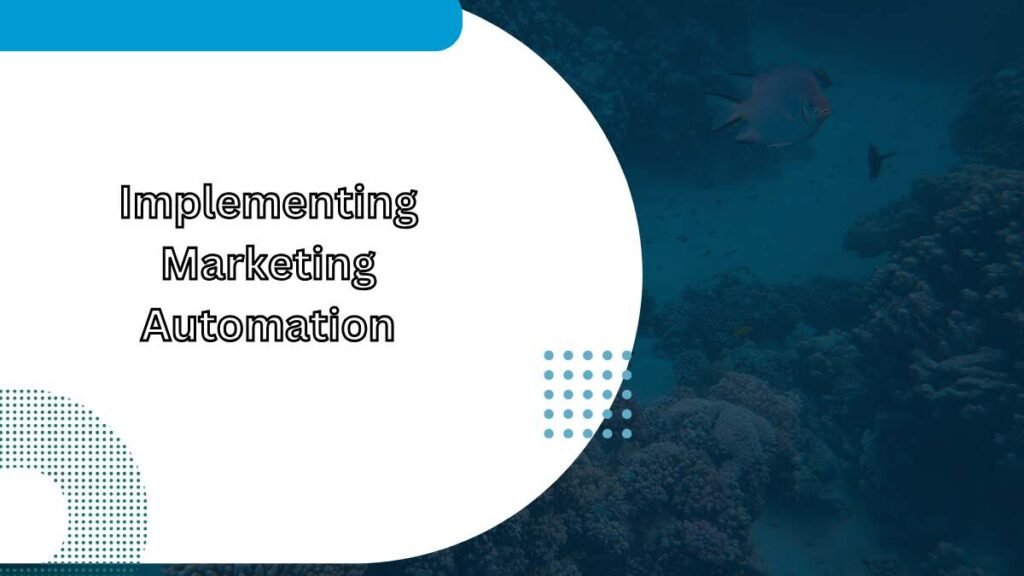B2B Marketing Ideas: How to Attract High-Quality

B2B marketing ideas need fresh, innovative strategies to generate leads, foster long-term relationships, and drive growth. Unlike B2C marketing, B2B strategies demand a tailored approach focused on relationship-building, targeted content. And a deep understanding of the business buyer’s journey. Let’s explore some impactful B2B marketing ideas that leverage modern tools and techniques to enhance brand visibility. Increase engagement, and generate leads.
Understanding B2B Marketing
Business-to-business (B2B) marketing involves promoting products or services to other businesses, rather than to individual consumers. This type of marketing emphasizes logical, ROI-driven decisions and often involves a longer sales cycle than B2C. Since B2B buyers prioritize value, data-driven strategies and precise targeting are crucial to successful marketing.
Lead Generation Strategies for B2B Marketing
Lead generation is the foundation of any successful B2B marketing strategy. It involves capturing interest from potential customers who may eventually make a purchase. There are various ways to generate leads, and selecting the right tactics can significantly impact the effectiveness of your campaigns. One effective method is to create high-quality, gated content. Offering industry reports, whitepapers, or comprehensive guides in exchange for contact information helps generate qualified leads while providing valuable resources to your audience.
Content Marketing for B2B

Content marketing continues to be a powerful tool in B2B marketing. By producing valuable content tailored to your target audience’s needs, you can establish thought leadership, build trust, and nurture leads over time. B2B content marketing requires an approach focused on depth and value, so prioritize creating comprehensive, informative, and actionable pieces. Content types that work well in B2B include in-depth blog posts, industry reports, case studies, and explainer videos. These formats allow you to showcase expertise and provide solutions to common challenges your audience faces.
The Role of Account-Based Marketing (ABM)
Account-Based Marketing (ABM) is an approach that focuses on targeting specific, high-value accounts rather than casting a wide net. With ABM, marketing and sales teams work closely to identify key accounts, understand their unique challenges, and create highly personalized content for each account. ABM is particularly beneficial in industries where the sales process is complex and requires personalized interaction. This strategy enhances the efficiency of sales and marketing efforts by directing resources toward the highest-potential accounts, leading to increased conversions and better customer retention.
Must Visit: Digitzo
Creating Effective Email Marketing Campaigns: B2B Marketing Ideas
Email marketing remains a cornerstone of B2B strategies. It’s a versatile tool that can be used for lead nurturing, customer retention, product announcements, and more. An effective B2B email marketing campaign must be personalized and relevant, delivering value through well-crafted messages that address recipients’ pain points. Segmentation is key to success in email marketing. By grouping contacts based on attributes such as industry, company size, or job role, you can tailor content that speaks directly to their interests.
Leveraging B2B Social Media Strategies
While social media marketing is often associated with B2C, it is equally important for B2B businesses. Platforms like LinkedIn, Twitter, and even Facebook can help increase brand awareness, build professional relationships, and generate leads. The key to B2B social media success is in providing value and engaging in industry conversations rather than promoting products directly. On LinkedIn, for example, you can share thought leadership articles, participate in discussions, or post updates that showcase your company’s expertise. Twitter is great for industry news and interacting with influencers, while Facebook groups allow for community-building around shared interests.
Utilizing Video Marketing
Video marketing has become an essential component of B2B marketing strategies, especially as more business professionals consume video content. Videos can be used for tutorials, product demonstrations, customer testimonials, and case studies, offering a dynamic way to convey information and engage viewers. In B2B, video marketing can simplify complex concepts, making it easier for decision-makers to understand your products or services. Webinars, for example, offer a real-time way to demonstrate value and interact with leads.
Search Engine Optimization (SEO) for B2B
SEO is critical for B2B companies looking to increase their online visibility and attract organic traffic. Since B2B buyers typically start their research online, appearing at the top of search engine results for relevant keywords is invaluable. Effective B2B SEO involves both on-page and off-page strategies. On-page SEO entails optimizing website content with keywords and topics relevant to your audience’s search queries. Off-page SEO includes strategies like link-building, which improves site authority and rankings.
Paid Advertising for Targeted Lead Generation
Paid advertising, such as PPC (pay-per-click) campaigns, allows B2B marketers to reach their audience quickly. By targeting specific keywords and demographics, you can attract relevant leads who are already searching for solutions your business provides. Platforms like Google Ads and LinkedIn Ads are particularly effective for B2B paid campaigns, as they allow for precise audience targeting. LinkedIn Ads, in particular, offer options for targeting by industry, job title, and company size.
Implementing Marketing Automation

Marketing automation is essential for B2B businesses looking to streamline repetitive tasks and improve lead nurturing. With automation tools, you can schedule emails, track user behavior, and trigger actions based on specific interactions, all of which help move leads through the sales funnel more effectively. For example, automation can segment leads based on their behavior on your website, delivering relevant content to those who are most likely to convert. By reducing manual tasks, automation allows your team to focus on high-impact activities that drive revenue growth.
Developing a Customer-Centric Website: B2B Marketing Ideas
A customer-centric website is key in B2B marketing, as it serves as the hub of information for prospective clients. Your website should be easy to navigate, with clear messaging, user-friendly design, and relevant information that addresses potential clients’ questions and needs. Incorporate testimonials, case studies, and interactive elements like chatbots to enhance engagement. Optimize landing pages with compelling CTAs (calls-to-action) to convert visitors into leads. A well-designed website not only builds credibility but also makes the conversion process more seamless.
Building Strong Relationships through Networking and Events
In B2B, relationships are paramount. Networking events, conferences, and industry expos provide excellent opportunities for face-to-face interactions, building trust, and forming long-lasting partnerships. Many businesses also host or sponsor webinars and virtual conferences to reach a larger audience while establishing authority in their field. Additionally, creating an online community, such as a LinkedIn group or a private forum, allows businesses to build a network of engaged professionals. Such communities offer valuable insights into industry trends and client needs, facilitating the development of targeted solutions.
Conclusion
The world of B2B marketing offers numerous opportunities to innovate and connect with other businesses on a deeper level. By leveraging a combination of lead generation strategies, content marketing, ABM, email campaigns, social media, SEO, and networking, you can create a dynamic marketing strategy that fosters growth, drives leads, and builds meaningful relationships. Each tactic complements the others, creating a comprehensive approach that resonates with B2B buyers who are increasingly looking for value-driven, personalized interactions.
FAQs
What is the significance of content promoting in B2B?
Content marketing helps B2B businesses build trust, showcase expertise, and nurture leads by providing valuable information that addresses their audience’s needs and challenges.
How does ABM differ from traditional marketing?
Account-Based Marketing focuses on targeting specific high-value accounts with personalized strategies, while traditional marketing often aims for a broader audience.
Which job does virtual entertainment play in B2B promoting?
Social media helps increase brand awareness, foster professional relationships, and share valuable content, with LinkedIn and Twitter being particularly effective for B2B.
Why is SEO critical for B2B companies?
SEO ensures that B2B businesses appear in search results when potential clients are researching solutions, helping to attract high-quality organic traffic.
How can B2B businesses use video marketing effectively?
Video marketing allows B2B businesses to explain complex products, provide testimonials, and conduct webinars, helping to engage viewers and simplify decision-making.
Must Visit: Google Digital Marketing




